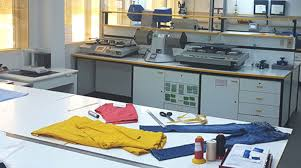Tunisia: The textile industry focuses on green to improve its competitiveness
In the midst of an ecological and digital transition, the Tunisian textile sector, one of the pillars of the country's economy, is reinventing itself to meet new international requirements. Through technological innovations and a commitment to sustainable practices, Tunisian companies aim to strengthen their competitiveness while reducing their environmental footprint. This shift is essential to remain competitive in international markets, particularly in Europe.

The Tunisian textile sector represents a significant part of the national economy, both in terms of its impact on employment and exports. It is the second-largest export sector in the country, just behind the mechanical and electrical industry. Around 30% of Tunisian companies and 150,000 workers are linked to this industry. However, in the face of new ecological demands and the growing competition from international markets, this sector must evolve to maintain its competitiveness.
El Mohsen Missaoui, the General Director of Cettex, a technical center supporting Tunisian textile companies, explains the importance of this transition. « The textile sector is essential for the Tunisian economy, creating thousands of jobs and generating a large share of exports. But to remain competitive, we must adopt cutting-edge technologies, both for the digital transition and to meet ecological challenges, » he emphasizes.
The Tunisian Textile Industry Turns to Green Innovation
One of the main priorities of Cettex and the textile sector, in general, is the transition to more sustainable practices. « The textile sector is one of the largest consumers of natural resources, particularly water. Reducing this consumption is therefore crucial. We have already invested in technologies that reduce the ecological footprint of our production, » says Missaoui. Among these innovations are water treatment plants and technologies aimed at limiting energy and water consumption.

The sector is thus meeting the increasingly strict requirements of the European Union, particularly under the Green Deal, which mandates companies to reduce their carbon footprint and water consumption. In this regard, Tunisia has made significant progress, with textile industries now « well advanced » in reducing their carbon footprint and water usage.
“An innovative project to produce jeans with zero water consumption and zero pollution”
Cettex, as a key player in the sector, plays a crucial role in this ecological transition. The institution helps Tunisian textile companies adapt to new ecological standards and integrate modern technologies. « We are actively working to improve the competitiveness of the sector by supporting technological innovation. We have opened new laboratories specializing in chemical, physical, and toxicological analysis of materials to help companies comply with international standards, » explains Missaoui.
Cettex also facilitates the access of Tunisian companies to more ecological technologies and supports the development of new pilot projects. For example, an innovative project to produce jeans with zero water consumption and zero pollution is currently in negotiation. This project, in collaboration with funders, aims to make Tunisia a leader in eco-friendly denim production.
A demanding but promising European market

A large portion of Tunisian exports goes to Europe, where ecological standards are becoming increasingly strict. To meet the demands of this market, Tunisian textile companies have had to adapt their production. « We are already well-positioned in Europe. But in the face of Asian competition, innovation and sustainability are becoming key factors to remain competitive, » says Missaoui.
At the same time, Tunisia is exploring new markets, notably in Africa and the United States. The African Continental Free Trade Area (AfCFTA) offers exciting prospects. The U.S. market, in particular, holds enormous potential, especially in the workwear and denim sectors. With products like jeans, Tunisia could tap into a $3.6 billion global market, thus increasing its exports and boosting economic growth.
The future: A circular and greener economy
The draft circular economy code in Tunisia, being developed in collaboration with the Ministry of Environment, could further encourage ecological practices in the textile sector. This new regulation would aim to reduce waste and promote recycling of materials, contributing to the transition to a greener textile industry.
« The ecological transition is now an essential factor to improve the competitiveness of the Tunisian textile sector. By investing in green innovation, we are meeting the needs of increasingly environmentally conscious consumers while preparing for future challenges, » concludes Missaoui.
The Tunisian textile sector, a key driver of the national economy, is reinventing itself with a greener and more innovative vision. By adapting to new ecological and digital requirements, it aspires to strengthen its competitiveness in the European market while exploring new markets. This green transition is a major asset for the future of the Tunisian textile industry and for the country’s economic growth.






